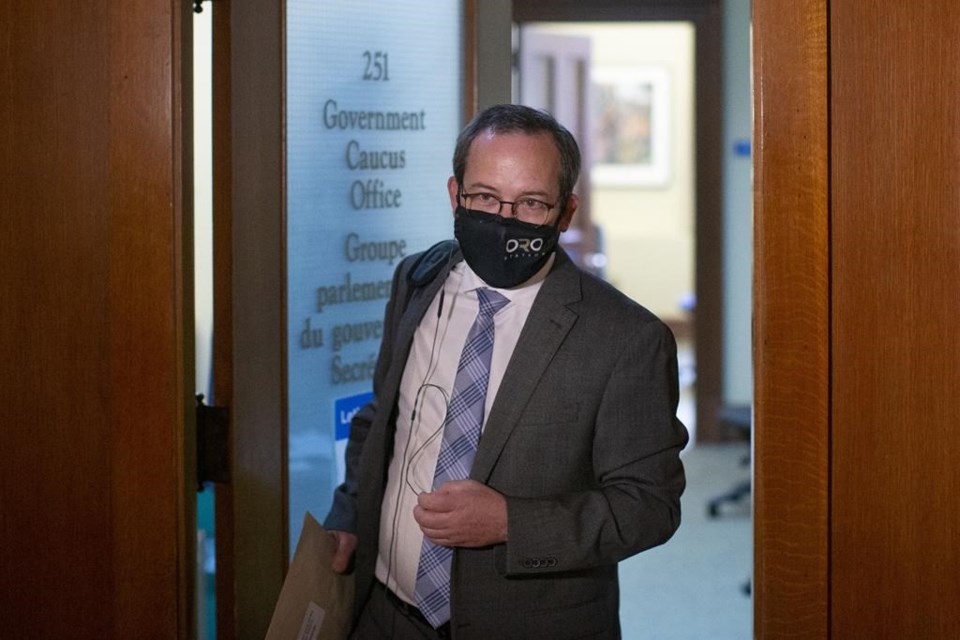TORONTO — Ontario plans to spend more than $72 million over two years to tackle a backlog in the province's courts it says has reached tens of thousands of cases over the course of the COVID-19 pandemic.
Attorney General Doug Downey said part of the funding will help pay for more than 340 new court employees, including Crown prosecutors, victim support staff and bail vettors – experienced Crown attorneys who facilitate faster bail decisions and resolutions when appropriate.
The additional staff will help boost trial capacity and reduce the number of cases coming into the justice system, as well as speed up cases already in the system, he said.
The bail vettors program, for example, ensures someone with experience has looked at a file before it comes to court and an appropriate resolution is set when it gets there, which frees up resources further down the line, the attorney general said. The province has 10 and plans to increase that to 23.
Downey said the province will also convene a team of experienced prosecutors to review files involving homicides and other targeted offences to help streamline those cases.
"I don't think the justice system has seen this kind of investment in my living memory, quite frankly," Downey said. "And I think it's a real opportunity to hold the right people accountable and to move other people through the system, if that's what the right outcome should be."
The province is also renting space in some areas to boost physical capacity, and plans to continue using technology for remote hearings and build on other processes to help handle cases virtually, such as a digital evidence management program.
"We're using things that we learned through COVID to have extra capacity – we can now run trials, we can do hearings electronically, we're in a position that we can leverage technology to have that kind of space," he said.
"And if we see a choke point (in the system), we're going to look at it."
The attorney general said he wants to ensure charges related to crimes such as murder and sexual assault aren't being stayed due to delays in the judicial system.
A Supreme Court of Canada ruling in 2016 established a maximum timeframe for cases to go to trial, after which defendants can apply for a stay of proceedings on grounds of unreasonable delay. The Jordan decision requires cases in provincial court to be heard within 18 months and those in superior court to be heard within 30, unless the court agrees there were extenuating circumstances.
Downey said the funding should allow the backlog to return to what it was in 2019 by 2023, but stressed that isn't the end goal.
"Getting back to where we were system-wise isn't necessarily success, that's presuming that the system was working properly before. So I'm a little more ambitious than just getting back to a level that we were at," he said.
In-person court proceedings were suspended in the first few months of the COVID-19 pandemic, with only urgent matters moving forward remotely. Public health restrictions have made it so that very few jury trials were heard during the pandemic.
An updated directive to Crown attorneys that took effect earlier this month instructed them to weigh whether prosecution is "viable and appropriate" and in the public interest given the impact of COVID-19 on the justice system.
It also directed prosecutors to consider all available and appropriate sanctions to resolve cases as quickly as possible, and to "make every effort possible" to minimize delays caused by the pandemic in order to reduce the risk of cases being stayed.
This report by The Canadian Press was first published Oct. 29, 2021.
Paola Loriggio, The Canadian Press

